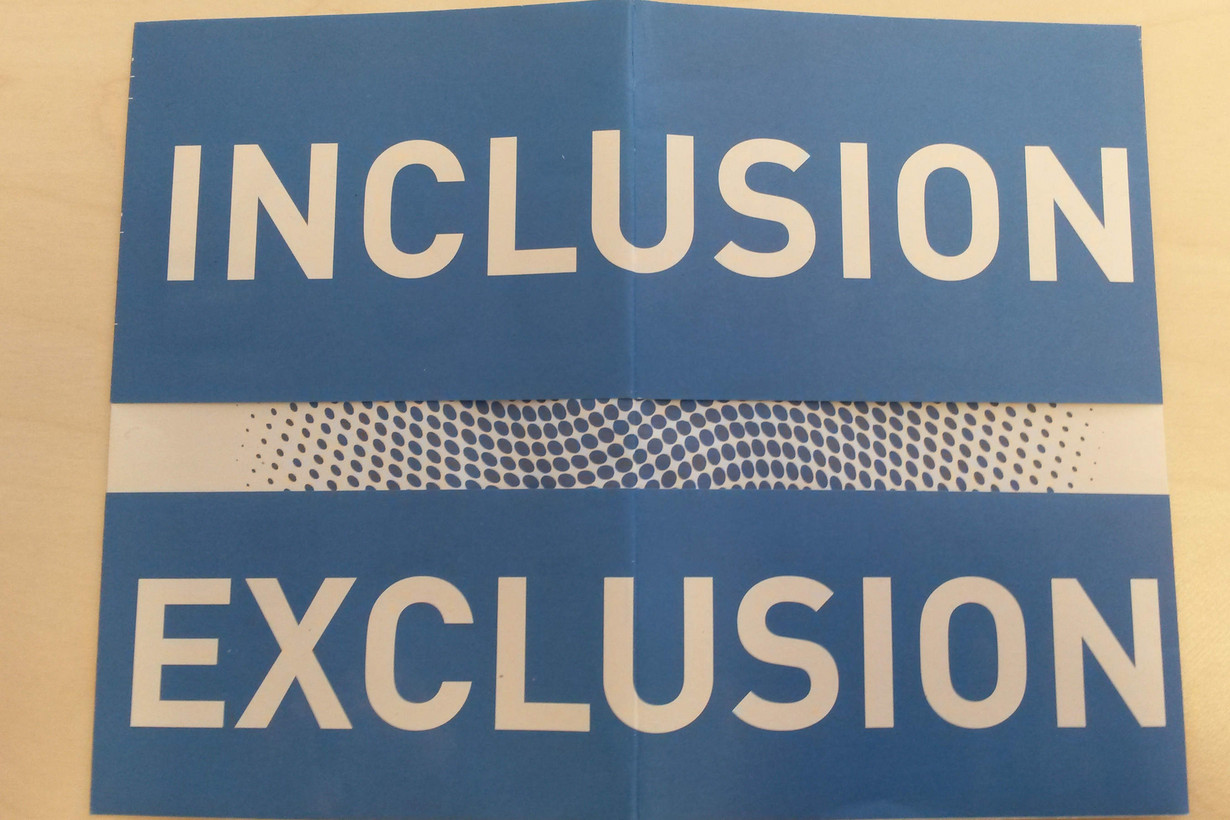
In times of wars and conflicts, increasing numbers of migrants and refugees, impairment of a European identity through e.g. the Brexit, and, at the same time, of an increasing re-nationalisation and attempts to construct Europe as a fortress, it is the more important to reflect on and analyse the particular contributions of education and educational research to processes and structures of inclusion and exclusion. At the same time, we also should ask to what extent these processes and structures serve as resources for educational research aiming at sound empirical investigations, critical philosophical, historical and comparative analyses and feasible suggestions for individual and societal developments through education.
Inclusion and exclusion can be seen as the poles between which the degree of societal integration is organised. On the one side it deals with the big topics of social justice, equality, equity and equal opportunities, on the other side it also marks the limitations of what is inside or outside of the constitutional frame of a society. Inclusion and exclusion can be seen both as a process of shifting and changing the degrees of freedom and liberty and as a structure of organising integration according to particular rules and regulations. Europe and processes of Europeanisation play a significant role and bear constitutive responsibilities in these respects. Freedom and liberty, constitutional rights and duties, serve as fundamental principles which we defend against foes and barbarism, which we discuss, interpret and criticise against dogmatism, ignorance, power and oppression, and which we take as the ethical ground education and educational research are based on.
Inclusion and exclusion are significant and challenging topics for education and educational research. We already have quite a number of distinct theoretical frameworks (Foucault, Bourdieu, Luhmann, Goffman, Basaglia, etc.) available, which conceptualise the relationships between inclusion and exclusion in particular ways. We also find a lot of research expertise and experts across Europe, including members of EERA, which enriched our knowledge and viewpoints about inclusion and exclusion. They also point to the fact that inclusion and exclusion has to be conceived as a complex relationship, where e.g. also students are “included-as-excluded” – depending from the hierarchy and valuation of educational institutions.
The complexities, tensions, paradoxes, even contradictions embedded within the relationships between inclusion and exclusion, thus, are related to a broad range of problems, Including: people with special needs, educational diagnostics and performance measurement, educational institutions as life course regimes, equal opportunities for all, segregation at schools, education governance, access to education, training and lifelong learning, access to and participation in an information or knowledge society, media education etc.. However, it is not only about pupils or students, but also about teachers, pedagogues and school administrators; it is not only about standard school settings and formal educational organisations, but also about informal education and those “Not in Education, Employment or Training”. In view of the increasing importance of certificates, processes and structures of inclusion and exclusion could also be interpreted as processes and structures of recognition and misrecognition.
Against these backgrounds, education, interculturality and intercultural communication become a crucial issue. Dealing with diversity is far beyond idealist, romantic or harmonic ideas and experiences (as the word ‘variety’ would suggest), but more determined by tensions, ruptures, frictions, differences, contradictions, paradoxes, breaks. Therefore, educational research is challenged both theoretically and empirically to conceptualise and analyse such tensions and frictions processes and structures of inclusion and exclusion generate; and it is also challenged to develop and provide prospects and possibilities to deal with such tensions and frictions in the light of societal, educational and ethical basic principles.
These problems and topics to some extent seem to be locked in particular national or cultural units, as education to a large extent contributed and still contributes to forming a national or cultural identity. In a globalising society, however, these topics and problems necessarily get an international and intercultural shape, which, in turn, re-affect the national, regional and local levels. Intercultural communication becomes a basic necessity. As the complexity of processes and structures of inclusion and exclusion increase, diversity, interculturality and internationality are to be considered on several levels – from the local to the international, from the children to the adults, from the informal to the formal education, from the students to the teachers, from the included to the included-as-excluded, from the recognized to the misrecognised.
We expect ECER 2018 in Bozen-Bolzano to discuss such structures and processes of inclusion and exclusion, of recognition and misrecognition, regarding their relevance for education and educational research and to significantly contribute to making such tensions both a scholarly and a public theme. We also expect that ECER 2018 will theoretically, empirically and practically conceptualise, investigate and experience intercultural communication as a powerful resource of mediation, mutual understanding and also of intellectual delight.
The conference venue is an excellent opportunity, to do this in an intercultural setting, which could provide some evidence regarding intercultural communication trying to take diversity and tensions between inclusion and exclusion as productive resources for education and educational research.
Welcome to Italy!
Here you can download the ECER 2018 Call for Proposals and Networks' Special Calls